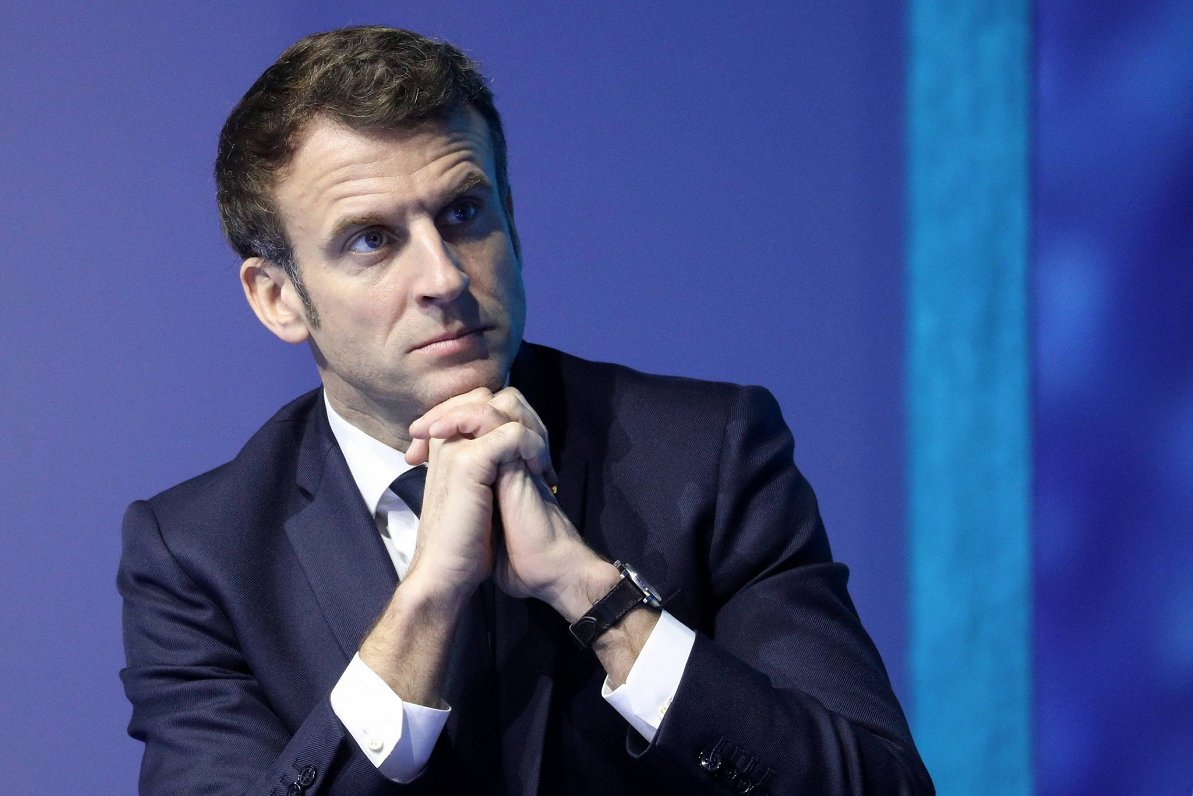The French president’s chancellery said a two-minute phone call by the two leaders aimed at preventing a last-minute Russian invasion of Ukraine.
Both Macrone and Putin have “expressed a commitment to continue the dialogue” on how to implement the so-called Minsk agreements, as well as on “the security situation and stability in Europe,” the Elysee Palace said.
On the other hand, as stated by the Kremlin,
Putin has told Macron that allegations against Moscow of planning an attack on Ukraine are “provocative speculation” that could lead to conflict.
The Kremlin’s statement accused the West of supplying “modern weapons” to Ukraine and its reluctance to force Kiev to comply with the Minsk agreement.
“Conditions are being created for possible aggressive actions by Ukrainian security forces in the Donbass,” the Kremlin added.
As is well known, in 2014, Russia occupied Ukraine-owned Crimea, but then invaded mainland Ukraine, where the then-seized territories in the Donetsk and Luhansk regions are still controlled by Moscow-funded and armed militant gangs.
An agreement reached in 2015 through France and Germany obliges Ukraine to grant extensive autonomy to the territories controlled by Russian gunmen in the east of the country, as well as to guarantee an amnesty for all fighters involved in the war against the Ukrainian army.
The agreement stipulates that Ukraine will regain control of the border with Russia only after the holding of local elections in areas controlled by militant gangs.
These rules, which were imposed on Kiev in the face of a direct military threat from Russia, are in fact unacceptable to Ukraine, as they effectively destroy its sovereignty, and it is therefore not realistic for parliament to approve the laws needed to implement them.
Many Ukrainians see the agreement as a betrayal of national interests, and both President Volodymyr Zelensky and his administration have repeatedly called for it to be reconsidered.
Putin also stressed that there was no response from the US and NATO to the so-called “security guarantees” demanded by Moscow.
Russia has now concentrated more than 100,000 troops on Ukraine’s borders, raising fears of a new invasion of a neighboring country.
In December, Moscow issued an ultimatum to the West demanding a halt to NATO’s further expansion to the east and the dismantling of the Alliance’s infrastructure in the so-called new member states, restoring the status quo on 27 May 1997, before NATO’s first enlargement.
Putin has threatened that if Moscow does not receive the “security guarantees” it has demanded, it will have to implement “military technical measures”.
However, the United States and other NATO members have stated that these demands are unacceptable and not even negotiable, but have shown readiness to talk about arms control, missile deployment and confidence-building measures.
However, despite repeated statements by Moscow that it was not planning an attack on its neighbor, and calls from Ukrainian President Volodymyr Zelensk for “panic”, there have been growing concerns that war is inevitable.
Earlier on Saturday, US Secretary of State Anthony Blinken and Russian Foreign Minister Sergei Lavrov took place phone call.
During the meeting, Lavrov accused Washington of trying to provoke Moscow’s conflict with Ukraine.
Lavrov once again pointed out that the USA and NATO are ignoring the most important issues for Moscow about the so-called security guarantees.
He also said that “the United States’ propaganda campaign against Russia’s aggression against Ukraine has provocative aims and is urging Ukraine to sabotage the Minsk agreements and to try to resolve the Donbass problem by force.”
Lavrov told Blinken that the so-called Minsk agreement was not difficult to implement and that it could be done within a few months.
He also said that “the myth of Russia’s threat to Ukraine” had been “fabricated” by NATO after Moscow demanded so-called security guarantees from the West.
A telephone conversation between Putin and US President Joe Biden is also scheduled for Saturday, but given Moscow’s position during the previous two talks, it is unlikely to produce any results.
CONTEXT:
A number of countries called for leave its citizens in Ukraine after the United States warned that a new Russian military invasion of Ukraine might begin soon. However, Western countries continue their diplomatic efforts to prevent a Russian attack on Ukraine. Meanwhile, the Interior Ministry developed a plan in case a large number of people from Ukraine arrive in Latvia.
Already last year, Russia began pulling a contingent of troops off the Ukrainian border, raising concerns about a new invasion of the neighborhood. In December, Moscow issued an ultimatum to the West demanding a halt further enlargement of NATO to the east, as well as the dismantling of the Alliance’s infrastructure in the so-called new member states, restoring the situation that existed on 27 May 1997, ie before the first enlargement of NATO. Putin has threatened that if Moscow does not receive his requests “security guarantees”he will have to implement “military technical measures”.
The United States and other NATO members have stated that these demands are unacceptable and not even negotiable, but have shown readiness to talk about arms control, missile deployment and confidence-building measures. US President Joe Biden has warned Putin that the US will impose unprecedented sanctions on Russia if it attacks Ukraine.
–


